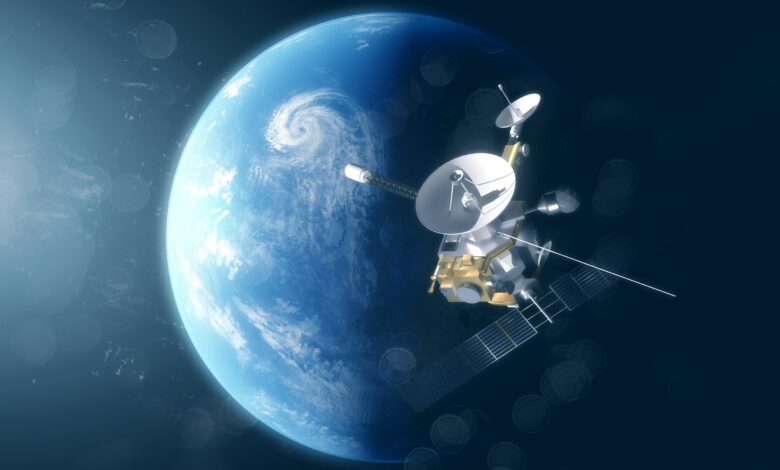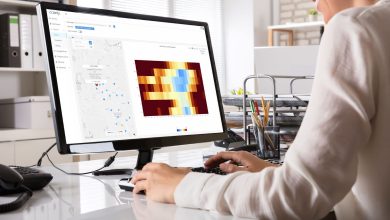
A New Age of Space Technology Is Here
Space is no longer just for astronauts and astrophysicists. According to futurist and space tech advocate Alexander Pazionis, it’s now the fastest-growing frontier for AI, robotics, automation, and high-impact technological innovation. AI and automation in space are transforming how missions are planned, executed, and optimized, marking a new era of intelligent exploration.From orbital factories to AI-driven spacecraft, space is transforming into an innovative, autonomous ecosystem built on emerging tech.
Automation Is Reshaping Orbital Economics
The global space economy, expected to surpass $1 trillion by 2040, is being revolutionized by machine learning algorithms, automated propulsion systems, and AI-driven mission planning.
From bright satellites to autonomous rovers, AI and automation in space are driving the next wave of technological innovation beyond Earth.
Reusable rockets and predictive fuel management systems, powered by automation, have significantly reduced launch costs. Innovative payloads now adjust their own routes mid-orbit, cutting risks and improving efficiency for private space ventures.
This isn’t just evolution, it’s an AI-powered transformation of the aerospace industry, with space logistics, orbital navigation, and infrastructure now fully integrated with advanced tech stacks.
Satellite Tech: The Smart Backbone of Earth and Space
AI-enabled satellite networks are no longer futuristi,c they’re here and growing fast. Companies like Starlink and OneWeb are deploying autonomous satellite constellations in low-Earth orbit (LEO) using intelligent routing to optimize performance.
Key applications of satellite AI technology include:
- Predictive weather modeling
- Precision agriculture with geospatial imaging
- Disaster response using real-time terrain analytics
- Bandwidth allocation using AI traffic prediction
Every pixel captured from orbit becomes actionable data thanks to AI-enhanced image processing. Satellites are now essential for data-driven industries like climate tech, logistics, insurance, and public safety.
Moon-Based Automation: AI Colonies and Smart Mining
The Moon is poised to become the first autonomous off-Earth hub, with lunar missions increasingly supported by robotic systems, AI mapping tools, and automated excavation equipment.
NASA’s Artemis program, alongside private partners, is developing:
- AI-controlled lunar rovers
- Robotic mining of helium-3 and rare elements
- Predictive maintenance systems for lunar habitats
AI will manage everything from power allocation to habitat environmental controls, making lunar development a fully integrated, innovative infrastructure project and a model for Mars.
Asteroid Mining: AI-Powered Resource Extraction
Asteroids are floating vaults of rare metals, and AI is the key to unlocking them. Companies like AstroForge and Planetary Resources are deploying automated drones and predictive geological AI models to identify and mine near-Earth objects (NEOs).
Highlights of space mining technology:
- Autonomous asteroid navigation systems
- AI-enhanced mineral composition analysis
- Self-repairing robotic drills and arms
These missions use robotic fleets powered by AI to reduce reliance on Earth-based command, opening the door to remote mining operations that could outperform terrestrial extraction both economically and environmentally.
Space Tourism: Luxury Above The Clouds
Though still a novelty, space tourism is building momentum. Companies like Virgin Galactic and Blue Origin have already launched paying passengers on suborbital spaceflights. It’s a new kind of luxury travel vertical, with an unmatched view.
The early customers are ultra-wealthy, but the goal is broader access over time. AI-based pricing models, automated flight scheduling, and real-time health monitoring systems powered by biometric AI will play critical roles in scaling operations. Just as aviation evolved from a luxury to a necessity, AI-backed space tourism could follow a similar path.
Tourism also builds public interest and investment in space. It normalizes the idea of humans traveling beyond Earth, creating demand for space-based entertainment platforms, augmented reality experiences, and even microgravity telemedicine services. These aren’t just joyrides, they’re a foot in the door
Manufacturing in Microgravity: The Future of Smart Production
Orbital manufacturing in microgravity enables the creation of products that are either impossible or far superior to those produced by Earth-based factories. This includes:
- AI-controlled 3D bioprinting of tissues
- Zero-defect fiber optics
- Microgravity-optimized pharmaceuticals
Onboard the ISS and future autonomous space stations, machine learning models analyze fabrication data in real time to correct defects, optimize resources, and reduce production waste.
This convergence of space manufacturing and AI not only enhances product quality but also lays the groundwork for self-sufficient orbital economies.
Intelligent Infrastructure: Building the Tech Backbone of Space
Just as railways powered the Industrial Age, AI-integrated space infrastructure is forming the backbone of the space technology economy. We’re talking about:
- AI-managed orbital fuel depots
- Autonomous repair drones and robotic space taxis
- Modular stations powered by intelligent solar arrays
Startups are actively building:
- Space-grade AI avionics
- Self-healing materials using nanotech
- Predictive AI systems for life-support management
These aren’t just tools, they’re platforms for a fully automated space supply chain and the foundations of AI-powered off-world living.
Tech Regulation in Orbit: Governing AI Beyond Earth
Space innovation is outpacing policy. As AI takes over mission-critical systems, new frameworks must address:
- Liability for autonomous spacecraft actions
- Regulation of AI decision-making in the international space zone
- Ownership rights for AI-discovered assets in orbit
AI will also play a central role in managing orbital congestion, with machine learning-based space traffic control systems and real-time collision avoidance models helping to ensure safe and scalable space operations.
Conclusion: The Future of Space Is Automated and Intelligent
Alexander Pazionis sees space not just as the final frontier, but as the ultimate proving ground for intelligent technologies. AI, automation, and space-grade systems are redefining how we explore, build, and profit beyond Earth.
The space race is no longer about who gets there first; it’s about who builds the smartest systems once they arrive. The next economic superpowers in space will be those who master AI-enabled infrastructure, autonomous robotics, and data-rich satellite ecosystems.




